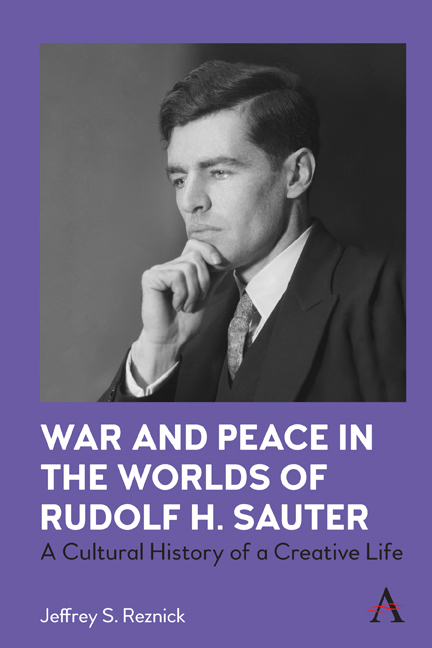Book contents
- Frontmatter
- Contents
- List of tables and figures
- Acknowledgments
- Introduction: Reconstructing a Creative Life
- Chapter 1 Beginnings, 1890–1914
- Chapter 2 Internment, 1914–19
- Chapter 3 Recovery, 1919– 24
- Chapter 4 Artistry I, 1924–39
- Chapter 5 Artistry II, 1939–50
- Chapter 6 Reflections, 1950–77
- Conclusion: Legacy
- Epilogue: In His Own Words
- Selected Bibliography
- Index
Chapter 3 - Recovery, 1919– 24
Published online by Cambridge University Press: 13 May 2022
- Frontmatter
- Contents
- List of tables and figures
- Acknowledgments
- Introduction: Reconstructing a Creative Life
- Chapter 1 Beginnings, 1890–1914
- Chapter 2 Internment, 1914–19
- Chapter 3 Recovery, 1919– 24
- Chapter 4 Artistry I, 1924–39
- Chapter 5 Artistry II, 1939–50
- Chapter 6 Reflections, 1950–77
- Conclusion: Legacy
- Epilogue: In His Own Words
- Selected Bibliography
- Index
Summary
Rudolf’s release from Frith Hill Camp on August 13, 1919, marked the first step in his recovery from an experience that tore away his life— including his childhood home and his father— and exacerbated his mother’s long-standing poor health. His journey forward reflected the prevailing milieu of the generation who had survived the war, grappling with their different experiences and memories of it. Rudolf participated in this process in his own way as he faced challenges of trauma, rebuilding his life and establishing his artistic career. He returned to the fold of his family and married Viola. He also embraced the patronage of his uncle which afforded him workspaces and collaborative and independent projects that stood distinctly apart from his wartime de facto studios and related grim productions. These spaces and creations achieved therein combined to distance Rudolf physically and psychologically from his internment experience, paving the way to artistic achievement, public recognition and personal fulfillment.
Upon arriving in Wingstone from London on 14 August, Rudolf received a “touching & wonderful welcome from everyone,” as Lilian documented the occasion and subsequent days in her diary. The group who received him included Viola and his mother, as well as his aunt Mabel and her children, Owen and Veronica. Rudolf proceeded to spend a “wonderful evening” sleeping on the veranda as mist filled the night air. The next day he practiced Bach sonatas on his flute while Mabel took photos and his mother wrote letters. Shortly thereafter, Mabel and her family departed, and a “glorious” Sunday followed, with Rudolf, Viola and Lilian spending it together. During the next week, Rudolf and Viola practiced German, wrote letters and began to ride horses. However, by the following Thursday, 21 August, Rudolf was “not v[ery] well” as he began to face traumatic symptoms stemming from his recent release. The next day he was “[in] pain” and “started stammering [sic],” conditions which marked the beginning of six consecutive days of illness. While intermittent walks and gathering flowers filled some of this time, Rudolf spent much of it in bed. Shortly thereafter he was “a little better” and “seemed much better,” but soon his “symptoms of pain [were] coming on again” and he was “v[ery] depressed—& not feeling well.”
- Type
- Chapter
- Information
- War and Peace in the Worlds of Rudolf H. SauterA Cultural History of a Creative Life, pp. 73 - 92Publisher: Anthem PressPrint publication year: 2022



